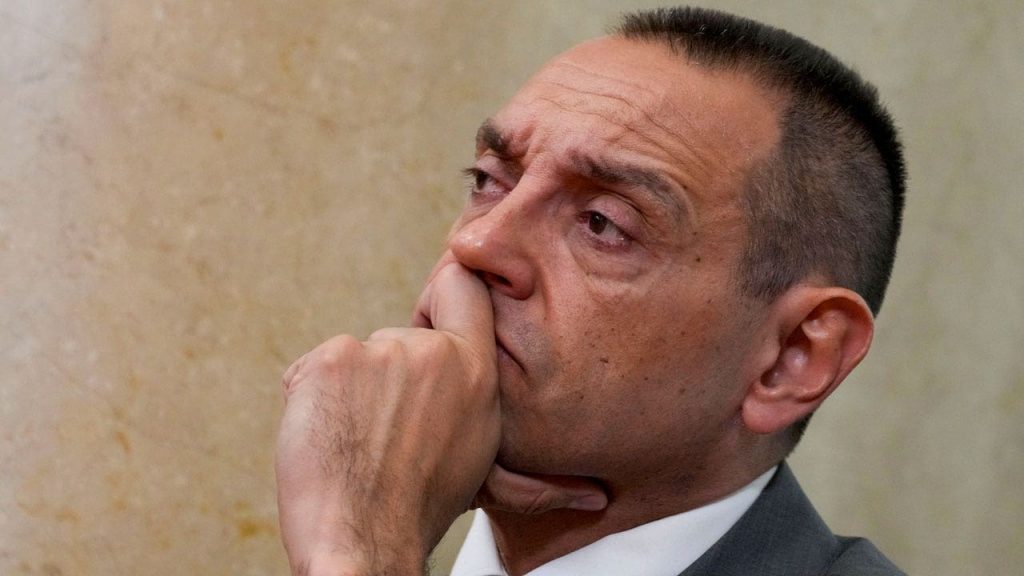Serbia’s new government, led by prime minister-designate Milos Vucevic, will include former intelligence chief Aleksandar Vulin as one of several vice-premiers. Vulin, who has close ties with Russia, was recently sanctioned by the United States for allegedly being involved in illegal arms shipments, drug trafficking, and misuse of public office. Despite Serbia’s formal intention to join the European Union, the inclusion of Vulin in the government suggests a continued close relationship with Russia and a refusal to join Western sanctions against Moscow over the conflict in Ukraine.
The U.S. Treasury Department’s Office of Foreign Assets Control accused Vulin of using his authority to help a U.S.-sanctioned Serbian arms dealer move illegal arms shipments across Serbian borders. He is also accused of involvement in a drug trafficking ring. Vulin resigned as the director of Serbia’s intelligence agency BIA after the sanctions were imposed on him. Prior to serving as intelligence chief, he had also held positions as the army and police chief. Vucevic, the prime minister-designate, previously served as the defense minister, highlighting the close ties between the government and security establishments.
The formation of the new government in Serbia comes after a tense parliamentary election in December, in which the ruling populist right-wing party of President Aleksandar Vucic won the most seats in the 250-member assembly. The election was marred by reports of widespread irregularities, leading to political tensions and opposition-led street protests. Despite the controversies surrounding the election, the ruling party’s victory paved the way for Vucic to retain power and for the formation of a new government with Vucevic at the helm.
Serbia, which is formally seeking EU membership, has historically maintained friendly relations with Russia. The inclusion of Vulin, a sanctioned individual with close ties to Russia, in the new government suggests that Serbia’s foreign policy priorities may continue to align more closely with Moscow than with Western allies. This dynamic could impact Serbia’s relations with the EU and the United States, especially as tensions between Russia and the West continue to escalate over conflicts like the war in Ukraine. The government’s composition reflects a delicate balance between pursuing EU membership and maintaining relations with Russia.
The role of Vulin in the Serbian government raises questions about the country’s commitment to combating corruption and organized crime, given the allegations against him. His appointment could signal a shift away from reforms aimed at addressing these issues, which are often prerequisites for EU membership. The decision to include Vulin in the government may also face scrutiny from Western allies, particularly the United States, which has imposed sanctions on him. The composition of the new government underscores the complex geopolitical landscape in which Serbia operates, balancing between Western aspirations and historical ties to Russia.
As Serbia moves forward with forming a new government, the inclusion of individuals like Vulin with controversial backgrounds and ties to sanctioned entities raises concerns about the direction of the country’s foreign policy and commitment to democratic values. The government’s ability to navigate these challenges will be crucial in determining Serbia’s relations with the EU, the United States, and Russia. The formation of the government may also impact domestic political stability, given the tensions surrounding the December election. Overall, the composition of the new government underscores the delicate balance Serbia must strike between pursuing EU membership and maintaining relationships with Russia amidst increasing geopolitical tensions.


